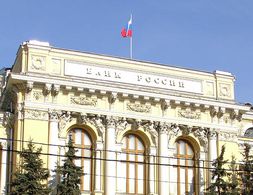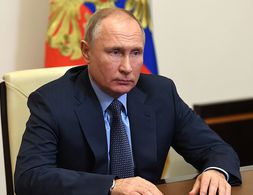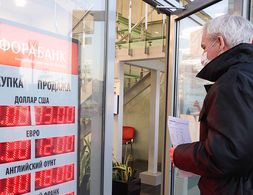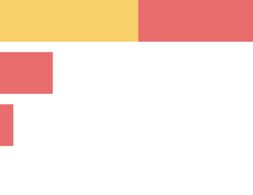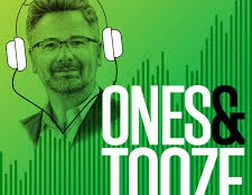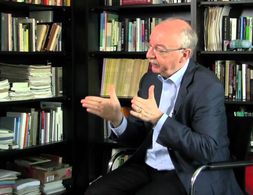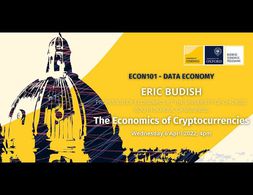✕
1062 results
The article discusses whether the turning point in EU's Russia policy with sanctions aimed directly at Putin's war chest of foreign reserves will change the landscape of countries' foreign assets.
"Alexander Kravchuk is an economist and editor at Commons: Journal for Social Criticims, who has previously written about IMF conditions on loans to Ukraine. Jacobin’s David Broder asked him about the country’s economic situation and why debt cancellation is important if Ukrainians are to be able to shape their future." (quote from the interview)
Cédric Durand locates the Russian War on Ukraine in relation to Russian Economic Development and Political Economy after the collapse of the soviet union.
In this interview Ilya Matveev discusses the social, political, economic, and ideological foundations of the Russian regime, to provide additional context about Russia’s geopolitical goals.
What determines the status of women in different communities? What role is played by women’s labor (inside and outside of the home)? By cultural norms regarding sexuality and reproduction? By racial/ethnic identity? By religious traditions? After some brief theoretical grounding, this course will address these questions by examining the economic, political, social, and cultural histories of women in the various racial/ethnic groups that make up the US today.
The article reviews the effects that the War in Ukraine will have for the global economy.
This section includes selected content from Post-Colonialisms Today - a research and advocacy project recovering insights from the immediate post-independence period in Africa, and mobilizing them through a feminist lens to address contemporary challenges. You will find additional content at postcolonialisms.regionsrefocus.org.
Drawing on Gramsci s Marxist Political Economy Mike Davis situates the War in Ukraine within the general condition of a crisis of capitalist hegemony The key argument is that the pathological and violent situation that we are finding ourselves in today is an expression of the inability of both global …
In this course we will critically analyze both economic theory and economic life through the lens of gender. Topics covered include: a critical examination of gender patterns and trends in the household, labor market, and the firm; issues concerning gender inequalities in the economy.
This article by Rüdiger Bachmann et.al. discusses the economic effects of a potential cut-off of the German economy from Russian energy imports.
This website belongs to PolyluxMarx and provides open access material for use while reading Karl Marx Capital For several years now people have been starting to dust off Marx and return to his analysis of society This is mainly due to the social turmoil in global capitalism weaknesses in prevailing …
Wheat and oil prices were already rising before the Russian invasion so what might be the effect for people in low income countries of a war far away that may have a secondary impact much closer to home In this short video Rabah Arezki Chief Economist Vice President African Development …
In this article, Hannah Ritchie presents the data we need to understand the scale of their contribution, and which countries are most reliant on Ukraine for their food supplies.
Study of the German Council of Economic Experts on the potential economic effects of a comprehensive energy embargo against Russia
Western sanctions on Russia after its invasion of Ukraine quickly led the Ruble to lose more than 45 percent of its value. But these days, the Russian currency is back to its pre-war value. Cameron and Adam explain the turnaround and discuss what it means for the war.
This course introduces students to the relevance of gender relations in economics as a discipline and in economic processes and outcomes.
This course is intended to present some of the main ideas underlying the micro aspects of gender economics. The courses will tackle issues as fertility, marriage, women labor force participation, wage gap, gender inequality, violence against women and women empowerment within her household and within the society where she lives.
By the end of this course, students should understand the basic economic theories of the gender division of labor in the home and at the workplace, and theories of gender differences in compensation and workforce segregation.
To what extent does gender affect people's patterns of labor force participation, educational preparation for work, occupations, hours of work (paid and unpaid) and earnings?
This course is an introduction to Development Economics and is concerned with how economists have sought to explain how the process of economic growth occurs, and how – or whether – that delivers improved well-being of people.
In this interview Gerd Gigerenzer place bounded rationality into the context of a larger development in thinking about what rationality is He touches on unbounded rationality which remains overrepresented and popular in neoclassical economics he explains different interpretations of bounded rationality and concludes with an ecological interpretation of rationality He …
This graduate-level course examines issues related to women’s paid and unpaid work during a time of rapid integration of world markets. Students will analyze the role of government policy, unions, corporate responsibility, and social movements in raising women's wages, promoting equal opportunity, fighting discrimination in the workplace, and improving working conditions.
The goal of the course is to deepen students’ understanding of the Latin American development experience by viewing it through a gender lens.
For many social critics "globalization" is a signpost of “late-capitalism” with the rise of multinational corporations, mass consumption and the multidirectional flows of capital, labor, media, communication, ideologies and social movements across national borders. Feminist analyses of globalization and the gendered and sexualized permutations of these phenomena offer a critical stance for theorizing these processes, and for studying their complex articulations across time and space.
The piece describes some of the effects that Nixon's decision to delink the dollar from gold in the 1970s had for the relationship between the IMF and its member states. A focus is on the negative effects of this change on societies in the Global South.
The lecturer focuses on his own paper The Economic Limits of Bitcoin and Anonymous Decentralized Trust on the Blockchain analysing the innovation of cryptocurrencies particularly bitcoin and its economic credibility The innovator of cryptocurrency Satoshi Nakamoto incorporated an interesting combination of computer sciences and economics The paper argues the limitations …
Asset Management firms control large parts of the global economy Just the three American asset management firms BlackRock Vanguard and State Street manage more than half of the combined value of all shares for companies in the S P 500 Their combined managed assets amount to 22 trillion May 2022 …
Sabel and Zeitlin present the persistence of small firms in Europe against the rise of mass production and modern enterprises Their article starts by analysing how mass production can be considered a historical necessity for the classical view as it is a highly specialized structure where man and machine can …
The podcast discusses how to deal with the rising inflation and presents a comparative perspective between the US and the EMU. Basically the speakers discuss whether we are heading to a stagflation in Europe similar to the 1970s and they compare the macroeconomic dynamics in the United States vs. the EMU.
Mitch Jeserich interviews Professor Richard D Wolff a professor of economics at the New School University in New York City Prof Wolff presents an explanatory theory of how inflation occurs in an economy Briefly profit driven employers raise the price in order to maximize profits of private corporations they own …
Complexity economics and institutional economics are complementary approaches to studying the economy. They can pool their methods and foundational theories to explain the mechanisms that underlie economies.
Why did inflation lift of in 2022? Are there differences between the US and the Eurozone and if so, what are they?
We use cookies on our website. Click on Accept to help us to make Exploring Economics constantly better!

